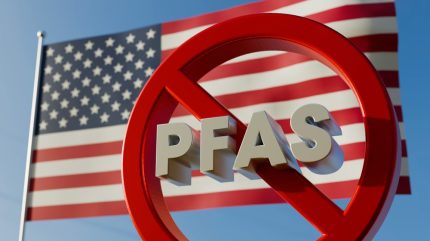
California Governor Gavin Newsom has vetoed SB 682, a proposal to widen the state’s PFAS ban to more consumer products, citing concerns about the availability and cost of cooking products.
The decision on 13 October 2025 sends the bill back to the Senate and leaves existing rules for food packaging and other categories in place.

Discover B2B Marketing That Performs
Combine business intelligence and editorial excellence to reach engaged professionals across 36 leading media platforms.
What SB 682 proposed
SB 682 aimed to prohibit the sale or distribution of products with intentionally added PFAS—often called “forever chemicals”—across cookware, cleaning products, dental floss, juvenile products, food packaging and ski wax.
Draft timelines contemplated phased restrictions beginning in 2028 for most products and extending to cookware in 2030.
The bill also would have exempted manufacturers from new registration fees created under earlier PFAS legislation, relying instead on certificates of compliance upon request.
Those changes will not proceed following the veto.

US Tariffs are shifting - will you react or anticipate?
Don’t let policy changes catch you off guard. Stay proactive with real-time data and expert analysis.
By GlobalDataWhat California PFAS law already covers
California already restricts PFAS in plant-fibre food packaging under AB 1200, enforced by the Department of Toxic Substances Control (DTSC). The rule bans intentionally added PFAS and sets a limit for total organic fluorine in paper-based packaging.
In 2024, AB 347 established an enforcement and registration framework spanning juvenile products, textile articles and plant-fibre food packaging.
Under AB 347, DTSC must adopt regulations by 1 July 2029 and begin enforcement by 1 July 2030; manufacturers of covered products are required to register with DTSC in that period.
These measures sit alongside earlier California laws targeting PFAS in specific categories, including bans affecting juvenile products and plant-based food packaging adopted in 2021, and disclosure obligations for cookware.
What happens next
The veto returns SB 682 to the Legislature amid lobbying by cookware, restaurant and packaging groups that argued a broader PFAS ban could limit affordable cookware choices and disrupt supply chains.
Environmental and health advocates supported the bill, saying wider restrictions are needed because PFAS persist in the environment and build up in people.
Any revived measure would need to balance those cost and availability concerns with public-health goals, while DTSC continues implementing AB 347’s enforcement scheme for existing product categories.





